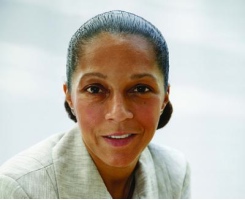BY NATASHA BARSOTTI — The British government announced today, Dec 11, that it will introduce a bill next year to legalize gay marriage but will make it unlawful for the Church of England to perform same-sex ceremonies.
![]()
If passed, the legislation will apply to England and Wales, the Irish Times notes.
“I feel strongly that if a couple wish to show their love and commitment to each other, the state should not stand in their way,” says Culture Secretary Maria Miller, assuring that no religious organization or minister will be compelled to conduct same-sex marriages if they do not wish to do so, and won’t be sued for discrimination, the Toronto Star reports. Other religious groups will be allowed to “opt-in” to perform such ceremonies.
Some religious groups, including Quakers, Unitarians and liberal Jews, have indicated a willingness to conduct same-sex ceremonies.
Veteran gay rights campaigner Peter Tatchell opposes the exemption for the Church of England and the Church in Wales. “The government’s commitment to allow most religious organisations to conduct same-sex marriages – but not the Church of England and the Church in Wales – is a disappointing fudge that perpetuates inequality,” Gay Star News quotes Tatchell as saying. “There is no reason why these churches should be treated differently from other faiths,” he adds, arguing that “faith-based discrimination could be open to legal challenge.”
Since 2005, gay couples have been able to form civil partnerships, which grant the same legal status as marriage, except for the label, the Star notes. But some gay rights advocates have argued that the distinction suggests that gay relationships are inferior.
While British Prime Minister David Cameron has come out in support of gay marriage, some of the more traditionalist members of his Conservative Party oppose the measure.
“I would like to ask the Secretary of State and the government what
right have they got, other than arrogance and intolerance, to stamp
their legislative boot on religious faith?” lawmaker Richard Drax asked.
Cameron maintains that he does not intend to force his party’s members to vote for the legislation. “I have always said it is going to be a free vote and that free vote applies to everybody, so I won’t be whipping people or pressurising people,” Cameron said Dec 10. “This is a matter for parliament. I think we just have to be grown up and accept that in a modern party, sometimes we will have issues of conscience where people will vote in different ways.”
In spite of the opposition, the bill is likely to have enough support in parliament to become law, including from members of Cameron’s cabinet and most lawmakers, in both the Liberal Democrat and Labour parties.
“I would like to think as we develop this debate and it goes through committee, we can get rid of some of the myths about gay marriage and people can actually see that what we’re doing is a good thing,” says Equalities Minister Helen Grant, who helped draft the government’s proposals.

Scotland is making its own plans regarding same-sex marriage. “We are committed to a Scotland that is fair and equal, and that is why
we intend to proceed with plans to allow same-sex marriage and religious
ceremonies for civil partnerships,” Deputy First Minister Nicola
Sturgeon said in July. “We are also mindful of the fact that the leaders of all
the other parties represented in parliament support same-sex marriage
and that there is significant parliamentary support for legislation.”

 Why you can trust Xtra
Why you can trust Xtra


